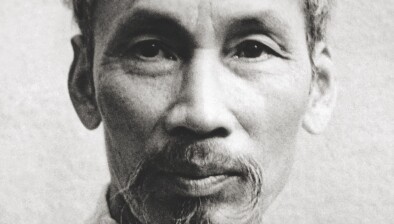Supreme Court: Extradition request by Poland refused for 23-year-old case

The Supreme Court has allowed an appeal against the surrender of a man to Poland to serve a sentence for minor drugs offences due to delay.

About this case:
- Citation:[2022] IESC 6
- Judgment:
- Court:Supreme Court
- Judge:Mr Justice Peter Charleton
The man had a suspended sentence for offences dating back to 1999, which he was ordered to serve in 2006. However, a European Arrest Warrant was not issued until 2019.
It was held that the delay in the case created a “real, exceptional and oppressive disruption to family life in the most extreme and exceptional of circumstances”. Further, it was held that there was an absence of information from the Polish authorities regarding the procedure adopted in the case. Accordingly, the court declined to surrender the man on foot of the warrant.
Background
In 1999, Mr Slawomir Wiktur Palonka imported cannabis into Poland and was convicted in 2002. Mr Palonka received a suspended sentence. As a result of further cannabis importation in 2003, Mr Palonka’s was convicted for a second time in the District Court in Noyw Tomsyl. His suspended sentence for the first offence was activated by the Regional Court in Hrubieszów in 2006.
The second conviction was subject to an appeal which concluded in January 2004. The court determined that both sentences for the 1999 and 2003 offences should be condensed into a single sentence of 10 months’ imprisonment. An EAW was issued by the District Court in Poznan in March 2006 following the decision.
Mr Palonka moved to Ireland in 2005 and was not present at the hearing in Hrubieszów to activate the suspended sentence. There was a six-year delay by the Polish authorities in executing the 2006 EAW because the police had not established where Mr Palonka was living.
There appeared to be significant confusion among the Polish authorities in the following years. Although the 2006 warrant was not executed, it had been transmitted to Ireland in October 2012 when Mr Palonka’s whereabouts were established. Further queries from Ireland resulted in the issuance of a EAW in 2012.
In November 2012, the Regional Court in Hrubieszów declined to issue a fresh EAW for the 1999 offence because it was advised that the EAW for the 2003 offence had been issued. It was reasoned by the authorities that if Mr Palonka was surrendered on foot of the 2012 warrant, then a further warrant was unnecessary. However, the Irish Court of Appeal struck down an order for Mr Palonka’s surrender in 2015 based on the 2012 warrant (Minister for Justice and Equality v. Palonka [2015] IECA 69).
The Regional Court in Hrubieszów indicated that it was not aware of Mr Palonka’s arrest in Ireland before March 2018. Finally, a fresh EAW issued in January 2019 in respect of the sentence which had been activated by order of the Polish court in January 2006. As such, the EAW related to the 1999 offence.
Mr Palonka was arrested on foot of the 2019 warrant and his surrender was ordered in November 2019. However, following an appeal to the Supreme Court, the matter was remitted to the High Court for further findings of fact to be made. In particular, the Supreme Court was concerned with why an EAW did not issue for the 1999 offence until after the courts had struck out the EAW for the 2003 offence. In July 2021, Mr Justice Paul Burns made the relevant findings of fact.
The matter was then returned to the Supreme Court. Mr Palonka argued that the overall delay in the case meant that his surrender was an abuse of process. In response, the Minister submitted that the EAW procedure had been properly followed in the case and therefore could not amount to an abuse of process.
Supreme Court
Delivering judgment in the case, Mr Justice Peter Charleton began by noting that in Poland, there was not one single judicial authority which issued EAWs. As such, multiple requests could be made for multiple offences. This appeared to be the reason for the disorganised issuance of the EAWs in the case.
The court considered the submission from Mr Palonka that he was not notified of the appeal in the Polish proceedings and was convicted in absentia. He sought to distinguish Samet Ardic (Case C‑571/17 PPU) on the basis that the present case involved the revocation of a suspended sentence due to further criminality, instead of non-criminal actions (see also X v Federal Republic of Germany (10565/83)).
It was held that, even if the ECJ were to expand the definition of a “trial” to include an appeal hearing or a hearing to lift a suspended sentence, Mr Palonka’s entitlement to notice was vindicated. Mr Palonka had been represented by lawyers at the appeal hearing and it had been established that he had committed the two offences at that point as he had pleaded guilty.
The court then moved to consider the issue of delay and abuse of process. It was noted that the original offending occurred in 1999, which was 23 years ago. The court reiterated the principal of mutual trust between members of the EAW system and that the process was designed to be a simple mechanism (Minister for Justice v Siklosi [2021] IECA 210). It was held that surrender was based upon minimum seriousness and that it would take exceptional circumstances to “overcome the high threshold for refusing surrender”.
However, the court determined that the present case was sufficiently exceptional to justify refusing surrender. First, it was held that Mr Palonka had settled in Ireland and raised a family. As such, his surrender would be “a real, exceptional and oppressive disruption to family life”.
Importantly, it was held that the trial judge was not able to make findings of fact on why the Polish authorities relied on the 1999 offence only after surrender had been refused by Ireland for the 2003 offence. When the matter was previously sent back to the High Court, it was this question which was central to the remittal, the court said. The failure to answer this point, coupled with the exceptional 23-year delay, was sufficient to deny surrender.
Conclusion
The court allowed the appeal and refused to surrender Mr Palonka to Poland.











